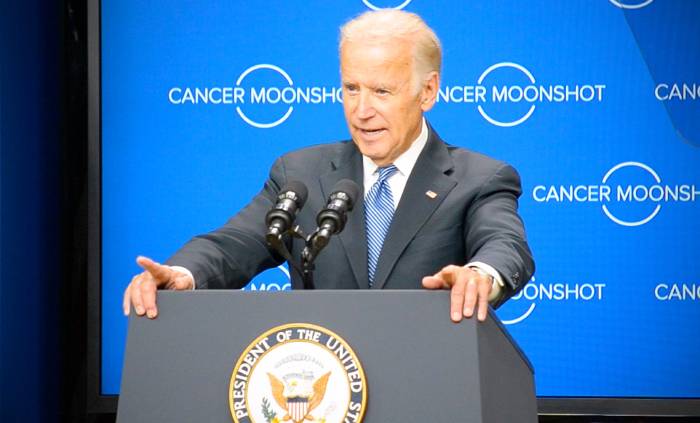President Joe Biden unveiled the federal government’s cancer “moonshot” program on Wednesday, with the goal of halving cancer deaths in the next quarter-century.
“We can end cancer as we know it,” Biden stated at a White House event.
For Biden, who lost his son Beau to brain cancer in 2015 and first started the programme as Vice President, the initiative is personal.
“I committed to this fight when I was vice president,” Biden said Wednesday. “It’s one of the reasons why quite frankly why I ran for president. Let there be no doubt, now that I am president, this is a presidential, White House priority. Period.”
Biden and his wife, Jill Biden, who is currently the first lady of the United States, formed a nonprofit foundation dedicated to finding a cure for cancer after Obama’s administration.
In 2016, Congress approved $1.8 billion in financing over seven years for the government’s moonshot effort. For the next two fiscal years, $410 million is available.
The program will try to “improve the experience of people and their families living with and surviving cancer,” according to the White House. It will aim to lower today’s age-adjusted cancer death rate by at least 50% over the next 25 years, after it fell by roughly 25% during the previous 20 years.
“It’s bold,” Biden stated. “It’s ambitious. But it’s completely doable. Just as we harnessed the size to develop cutting edge COVID-19 vaccines and treatments, we’ll bring a fierce sense of urgency to the fight against cancer .”
Biden announced a “announcing a call to action for cancer screening and early detection.
The COVID-19 epidemic caused more than 9.5 million cancer screenings to be skipped in the United States, according to the White House.
“We have to get cancer screenings back on track,” Biden said. “And make sure they’re accessible to all Americans.”
However, the pandemic has prompted Biden to set “very ambitious goals,” according to a senior Biden administration official.
“The scientific advances that we saw from the COVID-19 pandemic, from the response to it, also points to things that are possible today,” the official said.
The relaunched project, for example, will try to “study and evaluate multi-cancer detection tests, like we did for COVID-19,” according to the White House.
The White House will appoint a coordinator for the cancer “moonshot” effort, as well as a “cancer cabinet” of officials from across the federal government. The private sector, foundations, academic institutions, and others will all be involved in the project.
Other objectives, according to the White House, include “accelerating efforts to nearly eliminate cervical cancer through screening and HPV vaccination, with a particular focus on reaching people who are most at risk” and “improving equitable access to screening and prevention — with at-home screening, mobile screening, and community health networks.”
According to them, a White House cancer “moonshot” meeting will be held, as well as a White House roundtable discussion series.
The president also requested that Congress approve money for the “Advanced Research Projects Agency for Health (ARPA-H),” a research effort he has proposed to be housed at the National Institutes of Health and aimed at developing solutions for a variety of diseases.
According to senior Biden administration officials, roughly 100 members of the cancer community, including patients, survivors, researchers, advocates, caregivers, members of Congress, and others, joined Biden in the White House’s East Room on Wednesday.
During his remarks, the president relied on his own family’s experience managing a cancer diagnosis, addressing many of the problems people encounter after receiving a cancer diagnosis across the country.
“There’s still a sense of powerlessness, guilt that maybe you’re not doing enough because you don’t know enough,” Biden added, “Despite all the progress”.
Kamala Harris, the first lady and Vice President, spoke as well, and her mother was a breast cancer researcher.
- NCAA Beach Volleyball Championship 2025: Full Bracket, Schedule and How to Watch - April 25, 2025
- Mercuryo Launches Mastercard-Powered Crypto Debit Card via Ledger Wallets - April 25, 2025
- NFL Draft 2025 Live Stream: How to Watch Without Cable - April 25, 2025





